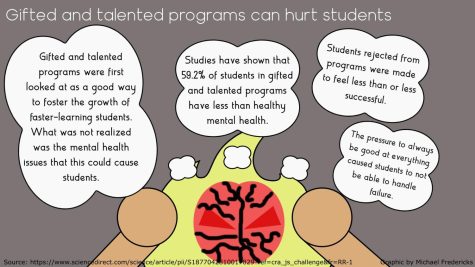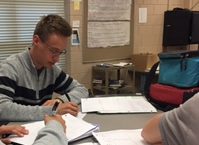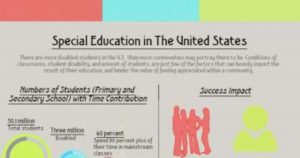Academic challenges cause burnout in students
June 1, 2023

For some, there is a desire to challenge themselves academically when it comes to picking classes. Gifted programs or advanced placement courses are a way to do so. These help with credibility on applications, preparation for higher levels of education, and the real world. Overall, these classes seem harmless, but when these courses stack up on each other, there are harder challenges that arise.
Academic burnout is a specific amount of burnout that comes with prolonged academic stress. It shows up in many different forms depending on the person. Students who have been placed in advanced classes experience extreme burnout. This can lead to not being able to function to complete their tasks.
Sophomore Grace Connors is in multiple AP courses at the moment and is experiencing this first hand. She explained how she was able to overcome some of this academic burnout when it became too much to handle.
“I was just kind of done and I felt so overwhelmed. I do not even know where to start with trying to get myself out of that academic hole I put myself in. I am still kind of getting out of it even now,” Connors explained.
Advanced classes can be helpful in moderation. They show detrimental effects when students are continuously placed into these programs. Shawna Clemens is a junior and has experienced this for most of her life. Although tough to measure, over a long period of time this can show up in many forms including grades. When it came down to her Ap test scores over time, she saw that with prolonged academic stress, she began to do worse.
“I feel like I did a lot worse on these AP tests than I did last year and with advanced placement my ninth grade year simply because of the stress that put it that was put on me,” Clemens said.
It is not always the letter grades that show if a student is struggling to keep up, most of the time it is internal. Connors explained that schools focus only on the letter grade, instead of how students are handling things. It is difficult to learn time management when they have no time left in their day.
Sophomore Zoe Meletiou has been in these advanced classes for most of her life. She was able to keep up with this stress for a while because she found things that worked for her. When after school activities became a factor, it was simply too much for her to handle.
“I think for me, it’s more of a mental game. I am still able to get good grades because I get my homework in but for me, it’s the issue of balancing everything. Balancing it with ballet and a lot of very high expectations for my director and then balancing it with other things is just a lot,” Meletiou added.
Most of the time there is more than one advanced class being taken. Along with this, after school programs and activities play a key factor in taking up a person’s time. With very little time to relax, academic burnout rates increase. It is hard for these students to keep up with everything going on in their lives.
“It has been really hard because with my current work schedule and my job position which not a lot of high schoolers have. I am a manager working full time, I do not have as much time for schoolwork yet alone life work,” Clemens explained.
When students are placed into these classes at young ages and continue, they lose passion for the activity. By constantly putting extreme pressure on what they do, “these students lose any form of enjoyment,” Meletiou said.
There is too much work to be able to handle more than two advanced courses. Although some may be able to take on this challenge, for the mass majority it is too much. Most classes average at least one hour of work at home every night per advanced class. There is no time left to be themselves.
“Most of my teachers are expecting us to review outside of school, but I can’t because I am doing the homework from that class and from other classes. I think part of it is having these expectations that we have just so much time outside of class to work on stuff, when in reality, we should be focusing on getting it done in school,” Meletiou explained.
To help handle the load of advanced classes, students can set personal boundaries. These can be on how many tough courses they can handle in a single year.
“I think that every student from a young age should be taught these ways to review instead of focusing on advanced advanced level maths and such, they should just learn how to review and how to keep up with their own brain,” Clemens said.
Advanced courses can be really helpful in setting students up for success in their futures. When it comes down to it, everything is only good in moderation. In order to combat the effects of academic burnout, students should proceed with caution. To solve this, make sure to take only as many advanced classes as you can handle. By talking to a counselor or understanding what worked in the past academic burnout can be limited.











Ava Bentdahl • Feb 6, 2024 at 9:18 am
Great job showing different ways to show burnout and how different students cope with it. Especially with being too busy sometimes it can be so stressful with school. This article personally spoke to me cause of academic stress so I understand what most of these people are talking about.